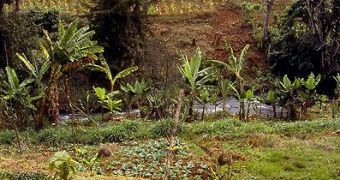As the International Year of Forests is coming to an end, the situation of African woodlands remains the same. While a few governments and environmentally-friendly organizations are saying that planting exotic trees in the endangered ecosystem represents an efficient response to severe drought and climate change, most experts tend to disagree.
Indigenous forests represent a powerful symbol in the lives and the culture of native populations, as they are a natural factor regulating climate and rain. They retain water and release it to rivers and springs, according to an article published in the Guardian.
The whole circuit is vital for the stability of the entire African ecosystem; yet, exotic trees are irrationally planted to replace the virgin indigenous tree populations rapidly wiped off to make room for unsustainable agricultural practices.
Deforestation is one of the most dangerous enemies of biodiversity. Instead of preserving the already fragile balance of native tree populations, authorities choose to fill the vulnerable surfaces of land with pine and eucalyptus. These exotic species do not support the creatures whose lives are influenced by the changes reflected in their habitat.
These forced elements form the so-called “silent forest” that come against nature itself, threatening the wellbeing of wildlife populations. In order to fight this emerging man-made risk factor, an international community entitled the Reduced Emissions from Deforestation and Forest Degradation, also known as Redd+ initiative, is trying to save our planet's vulnerable native woodlands.
Surprisingly, the number of forests which disappear every year increases the amount of carbon dioxide emissions by 17%. The initiative also tries to empower local communities, offering them the chance to say no to disrupting operations.
Moreover, it lends a hand to the unfortunate victims of climate change consequences, such as floods or excessive drought visible even at this point in time.
Exotic trees are intruders in an ecosystem that is not welcoming them. This situation is noticeable in Kenya, where authorities only managed to preserve 2% of the initial woodlands.
Experts reached the conclusion that “silent forests” leave their inhabitants exposed to an ample series of natural threats. Governments will have to choose between the implementation of Redd+ initiative and the exotic trees planting plan, as these two concepts are conflicting.

 14 DAY TRIAL //
14 DAY TRIAL //